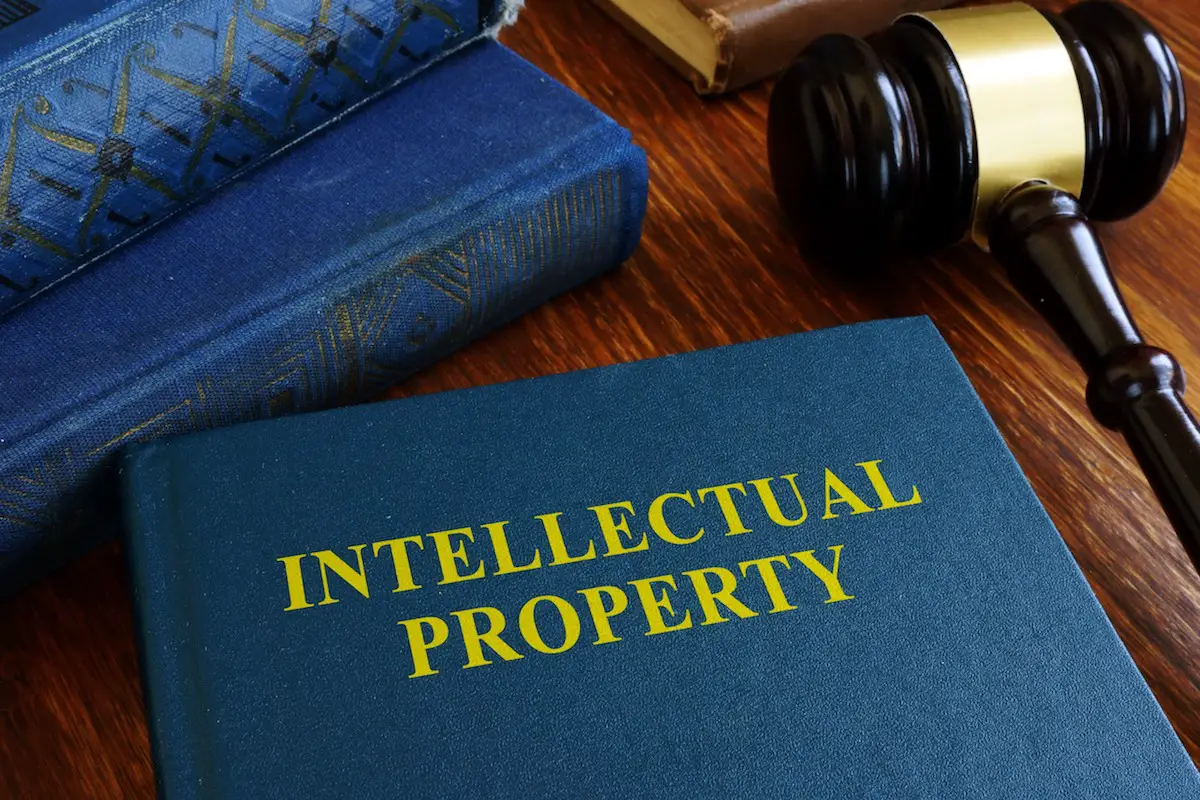
07 Jun What Is the Role of Legal Depositions In Intellectual Property Cases?
What Is the Role of Legal Depositions In Intellectual Property Cases?
The legal system can be complex for the novice. It can feel overwhelming if you are unfamiliar with case law or legal terminology. One area of law which can be confusing is intellectual property case law. As well as what is the role of legal depositions in intellectual property cases. As a business owner, understanding the ins and outs of this can help me protect one of the greatest assets of my business, my intellectual property. Knowing about this area of law is needed for your business’s protection.
Legal depositions are very effective regarding the United States patent and intellectual property cases. Depositions can decide the case before a trial even commences. Experienced counsel can review depositions and see the likely result of a trial. This can assist them in determining proposals for settlement. In this post, I will discuss the purposes of legal depositions, especially in intellectual property cases. I will examine the different types of depositions and the difference in preparation for a trial versus a deposition.
What Is a Deposition?
A deposition is used as testimony given under oath. A deposition is typically recorded in writing by a court reporter. This court reporter is trained in this area and operates outside of the court and prior to the trial. A deposition can take place in a variety of locations. However, typically the outside counsel will use their office. In later years virtual options have been utilized for convenience. Witnesses are questioned regarding the case. The court reporter records the session via word-for-word transcripts. Parties involved in the lawsuit are invited to attend.
During the deposition session, the attorneys present may object to any of the deposition questions. They can object to the types of questions being asked or assert privilege. Asserting privilege means that the questions answered speak to private conversations with the case’s attorneys. Depositions can last for a variety of times. It can be as short as an hour or go on for weeks. Since you are under oath during a deposition, you can face additional charges or penalties if you give false information.
The Role of a Deposition in Intellectual Property Cases
In intellectual property cases, legal depositions play a pivotal role in the pursuit of justice and the protection of intellectual property rights. Depositions are an integral part of the pre-trial discovery process, serving as a crucial tool for gathering evidence, examining witnesses, and building a strong case.
1. Depostions Help Uncover the Facts
One of the primary objectives of a deposition in an intellectual property case is to uncover relevant facts and obtain testimony from key individuals involved in the dispute. Attorneys have the opportunity to question witnesses, including experts, inventors, employees, or individuals with knowledge of the intellectual property in question. By conducting thorough and detailed depositions, attorneys can elicit essential information, clarify inconsistencies, and identify potential strengths and weaknesses in their case.
2. Help Assess Credibility of the Witness
Moreover, depositions serve as a means to assess the credibility and demeanor of witnesses. Attorneys can observe the witness’s responses, body language, and overall demeanor to evaluate their trustworthiness and gauge how they may appear in front of a judge or jury. This assessment helps attorneys develop effective trial strategies and make informed decisions about the case’s direction.
3. Depositions Can Uncover New Information
Additionally, depositions can uncover new leads, unexpected information, or critical documents that can significantly impact the outcome of the intellectual property case. Attorneys can explore various lines of questioning to delve deeper into the details, challenge opposing witnesses, and gather valuable evidence to support their client’s position.
4. Depositions can aid in settlement negotiations.
The information obtained during depositions can provide parties with a clearer understanding of the strengths and weaknesses of their respective positions, facilitating meaningful discussions and potentially leading to a resolution before trial.
In summary, in intellectual property cases, those with any information regarding the intellectual property may be called in to speak regarding the case. Usually, there will be an attorney or a business lawyer called representing the party accusing intellectual property infringement. This fact witness will determine if there is an infringement on the intellectual property in question. Anyone with knowledge of the intellectual property can be disposed of by any other third parties.

Related Questions
What is a legal deposition in the context of intellectual property cases?
A legal deposition is a sworn, out-of-court testimony given by a witness or party involved in an intellectual property case. It involves answering questions posed by the opposing counsel under oath.
Why are legal depositions important in intellectual property cases?
Legal depositions play a crucial role in intellectual property cases as they help gather evidence, examine witnesses, and build a strong case. They provide an opportunity to uncover key facts, assess witness credibility, and obtain critical information to support or challenge claims.
Who can be deposed in an intellectual property case?
Various individuals can be deposed in an intellectual property case, including witnesses with knowledge of the disputed intellectual property, inventors, employees, experts, or individuals involved in the creation or commercialization of the intellectual property.
How do legal depositions contribute to the discovery process in intellectual property cases?
Legal depositions are a key component of the pre-trial discovery process in intellectual property cases. They allow attorneys to obtain sworn testimony, explore lines of questioning, gather evidence, and assess the strengths and weaknesses of the case.
Can depositions in intellectual property cases lead to settlement?
Yes, depositions can contribute to settlement negotiations in intellectual property cases. The information obtained during depositions can provide parties with a clearer understanding of the case’s merits and potentially lead to productive discussions, increasing the chances of reaching a settlement agreement.
What should witnesses expect during a legal deposition in an intellectual property case?
Witnesses should expect to be questioned by opposing counsel under oath during a legal deposition. They should be prepared to provide truthful and accurate answers to the questions posed, while also being aware that their responses may impact the outcome of the case.
Are depositions in intellectual property cases admissible in court?
Yes, depositions can be admitted as evidence in court proceedings in intellectual property cases. However, there are specific legal requirements and rules regarding admissibility that vary by jurisdiction. Attorneys typically use deposition transcripts or video recordings to present witness testimony during trial.
How can attorneys use deposition testimony in intellectual property cases?
Attorneys can use deposition testimony in intellectual property cases to support their arguments, challenge opposing witnesses, impeach credibility, uncover new evidence, and strengthen their overall case strategy. Deposition testimony can be a powerful tool in presenting a compelling narrative in court.
What role do attorneys play during depositions in intellectual property cases?
Attorneys play a critical role in preparing for and conducting depositions in intellectual property cases. Your attorney will formulate strategic questioning, to protect your rights, object to improper questioning, and use depositions to gather essential information and build a persuasive case.
Can a deposition in an intellectual property case be used for other legal proceedings?
Yes, deposition testimony obtained in an intellectual property case can potentially be used in other related legal proceedings, such as arbitration or subsequent litigation involving the same parties and issues. However, specific rules and considerations may apply depending on the jurisdiction and circumstances.
How Do I Protect My Intellectual Property Rights to Avoid Litigation?
There are various ways to protect your intellectual property. Intellectual property protection provides a deterrent from your property being copied or stolen. The first and primary way you can protect your intellectual property is by registering it with the proper licensing bureau. Proper registration entails securing a trademark, copyright, or patent. Next, make sure you get the appropriate registrations for your business, product, or domain name.
You must register your business in the state where you operate. Another safeguard is having confidentiality and non-disclosure agreements for your business, partners, employees, and contractors. Ensure you have viable security measures in place, such as password protection on all computer networks, encryption of data, virtual private network access (VPN), and wifi-protected access 2 (WPA2). These measures will help ensure your intellectual property remains your own. Your intellectual property is an asset of the business and should be treated as such. Investing in the proper IT controls and legal protection documents is essential to running a solid business and avoiding litigation.
What are the guidelines for Depositions?
According to the Federal Rules of Civil Procedure (FRCP) Rule 30, there are many guidelines concerning depositions. These rules can vary from state to state if the state follows the discovery rules set in the court rules. Rule 30 says there can only be ten witnesses allowed on each side. Furthermore, each witness only is allowed to testify for a maximum of seven hours daily. Each deponent gets a subpoena or is notified of the proceedings by their attorney. However, your counsel must research the deposition rules for the jurisdiction your case is in.
Conclusion
Overall, legal depositions in intellectual property cases serve as a crucial mechanism for obtaining evidence, assessing witnesses, and shaping the course of litigation. By leveraging the deposition process effectively, attorneys can strengthen their cases, protect intellectual property rights, and strive for a favorable outcome in intellectual property disputes.






